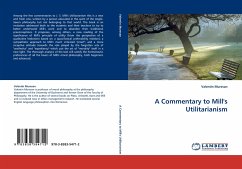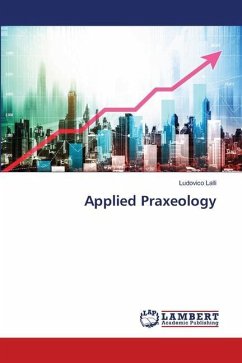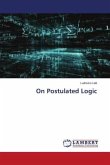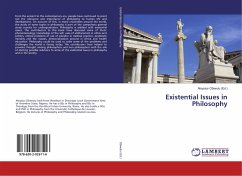Among the few commentaries to J. S. Mill's Utilitarianism this is a new and fresh one, written by a person educated in the spirit of the Anglo-Saxon philosophy but not belonging to that world. The book is an invitation addressed both to the students and their teachers to try to better understand Mill's work and to abandon their traditional preconceptions. It proposes, among others, a new reading of the significance of Mill's principle of utility (from the perspective of a qualitative hedonism based on a quasi-lexical preferability relation); a sympathetic approach to Mill's much criticized "proof"; and a more receptive attitude towards the role played by the forgotten arts of "aesthetics" and "expediency" which put the art of "morality" itself in a new light. The thorough analysis of the text will satisfy the hermeneutic preferences of all the lovers of Mill's moral philosophy, both beginners and advanced.
Bitte wählen Sie Ihr Anliegen aus.
Rechnungen
Retourenschein anfordern
Bestellstatus
Storno








